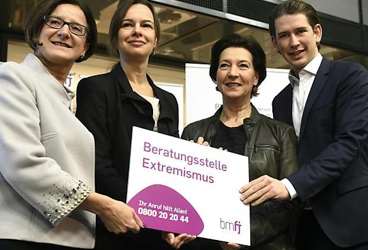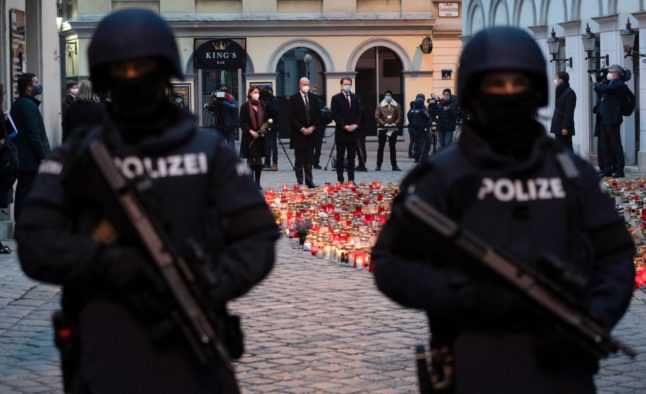This comes after 13 alleged jihadists were arrested in a series of police raids on Friday, among them a Bosnian-Serb who is believed to be a major player in a global terror network.
The counselling centre is aimed at family members, school pupils, teachers and friends who fear that someone close to them is in danger of becoming radicalized.
Alongside the hotline (0800 2020 44), there is also a group of advisers who have been trained in crisis intervention, who can visit worried families or friends quickly.
The advice is free and anonymous and Family Affairs Minister Sophie Karmazin said that calls and emails will be treated in confidence. If an advisor feels that a case is urgent they will immediately contact the Office for the Protection of the Constitution.
Advice will be available in five languages – German, Turkish, English, Arabic and Persian, but not in Bosnian, Serbian or Croatian, for the time being. Karmazin said that the Bosnian community in Austria generally speaks good German.
Interior Minister Johanna Mikl-Leitner (ÖVP) said that Friday’s raids in Vienna, Graz and Linz were a "major blow against terrorism". She said she could not give details of the suspects arrested, but that a judge will decide on Tuesday whether to give them pre-trial detention.
Mikl-Leitner added that she is working towards deleting radical Islamic propaganda from the internet by establishing a central point at the Federal Agency for State Protection and Counter Terrorism (BVT), where all such material would be sent from mid-December, and then forwarded on to Google and Youtube with a request for deletion. However, she said it would be impossible to delete everything due to the huge volume.
The number for the hotline is 0800 20 20 44. It is staffed Monday to Friday from 10am to 3pm, or email [email protected]



 Please whitelist us to continue reading.
Please whitelist us to continue reading.
Member comments